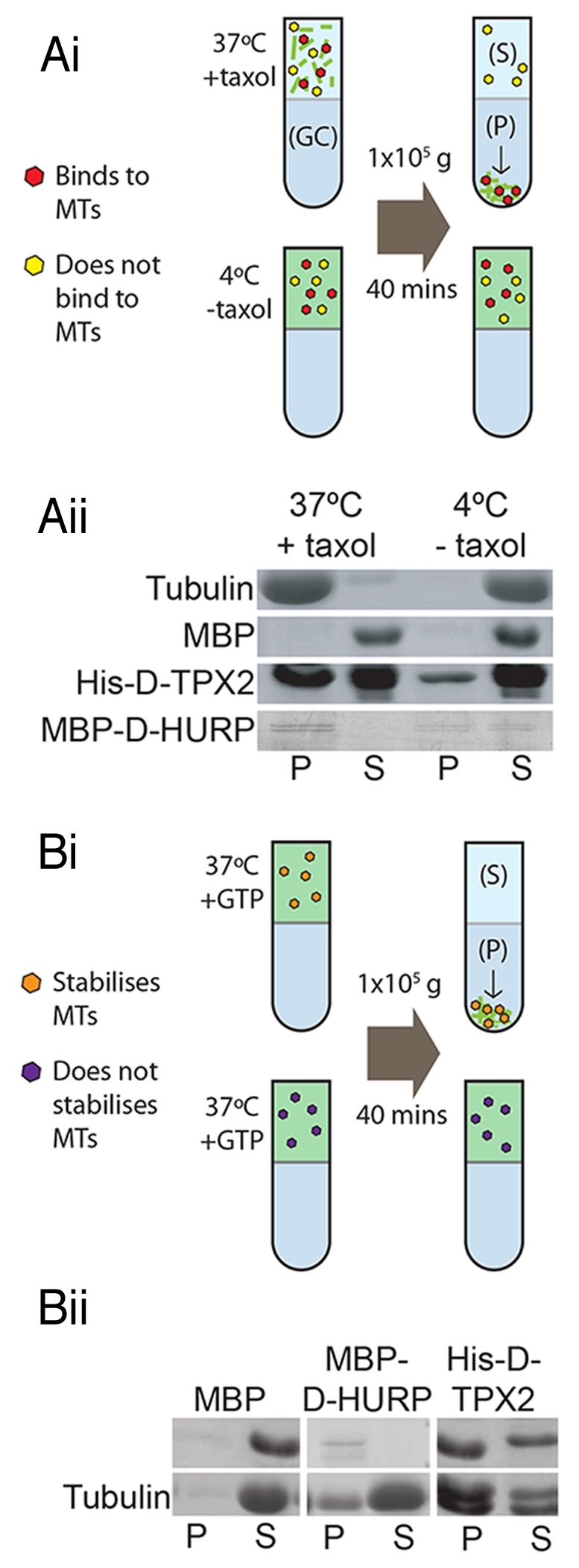
Figure 1. In vitro characteristics of Drosophila SAFs. (A) Microtubule co-sedimentation assay. Recombinant proteins are incubated with either preassembled microtubules (at 37 °C with Taxol) or with unpolymerised Tubulin (at 4 °C) then centrifuged at 100,000 g through a glycerol cushion (GC). Microtubules and microtubule binding proteins will pellet (P) while Tubulin and proteins that do not bind microtubules will remain in the supernatant (S) (i). SDS-PAGE/Western blots demonstrating that His-D-TPX2 and MBP-D-HURP are both found at higher amounts in the pellets of + Taxol samples, indicating they are both microtubule binding proteins, whereas MBP remains in the supernatant (ii). (B) Microtubule stability assay. Proteins are added to Tubulin and GTP and incubated at 37 °C, then centrifuged through a glycerol cushion. The level of Tubulin found in the pellet is indicative of the microtubule stabilizing/nucleating capabilities of the protein (i). Higher levels of Tubulin are found in the pellet of MBP-D-HURP and His-D-TPX2 samples compared with MBP as a negative control, indicating that both stabilize/nucleate microtubules (ii).
